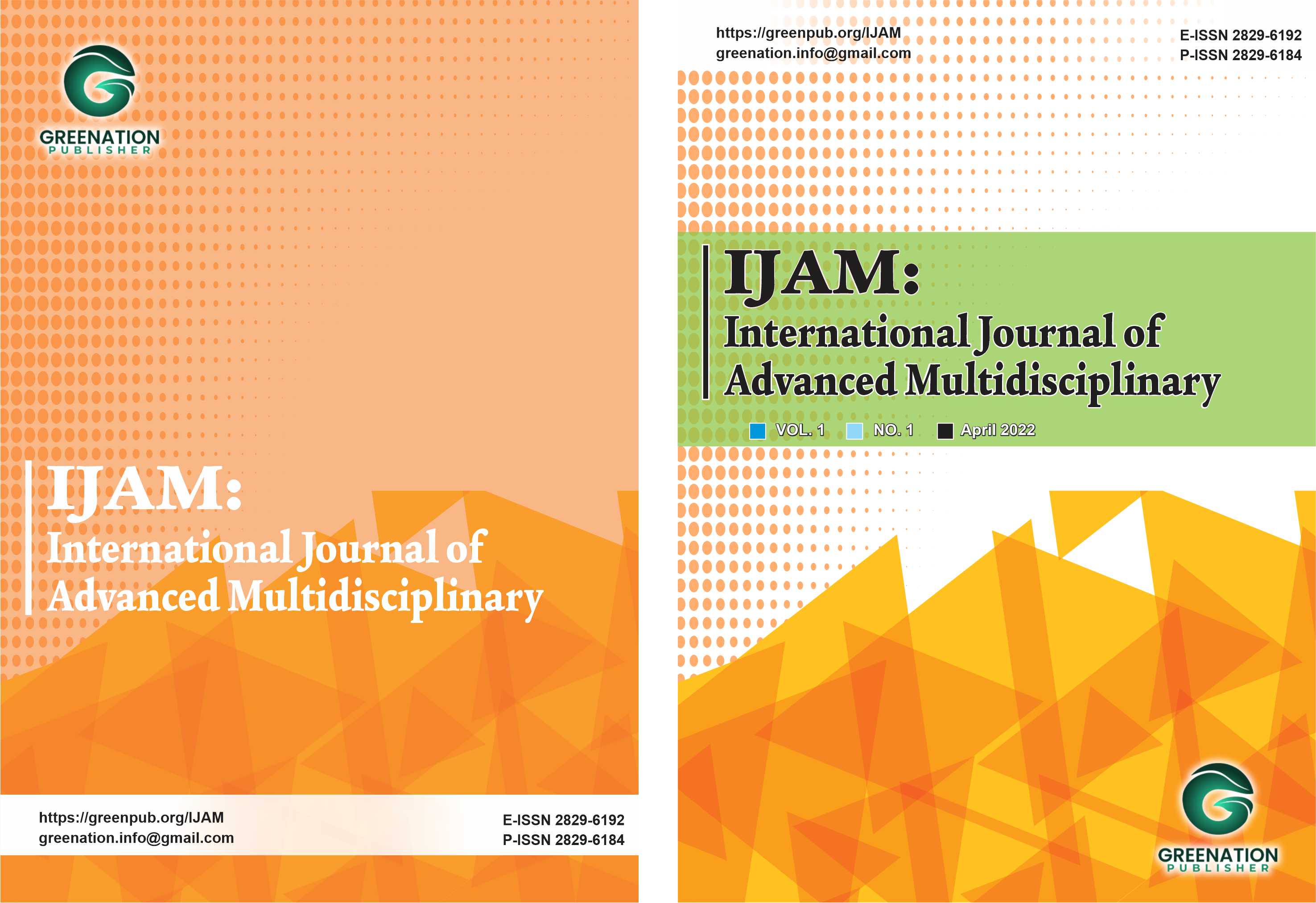The Influence of Emotional Intelligence on Toxic Behavior in Playing the Online Game Mobile Legends
DOI:
https://doi.org/10.38035/ijam.v3i2.601Keywords:
Emotional Intelligence, Toxic Behavior, Online Games, Mobile Legends, BekasiAbstract
This study aims to determine whether there is an influence of the emotional intelligence of vocational students on toxic behavior in playing mobile legends online games. This study used a survey method and data collection was carried out using questionnaires. The population in this study is students of SMK Karya Guna 2 Bekasi who play Mobile Legends online games for at least 1 year. The research sample was selected based on a purposive sampling technique with 94 respondents and using SPSS Version 25. The percentage of emotional intelligence results of SMK Karya Guna 2 Bekasi students is 80% to 68% and is in a strong category, (2) the results of the percentage of toxic behavior are 56% to 28% and are in the sufficient to the weak category, (3) Based on a simple linear regression test, there was a significant negative influence between emotional intelligence on toxic behavior with a regression coefficient value of -0.260 and was in the weak category with a value of -0.370. The research results are only an initial description of the phenomenon. More in-depth research and more comprehensive data collection techniques are needed. The higher the emotional intelligence that students have, the lower the toxic behavior carried out by students, conversely the higher the toxic behavior carried out by students, the lower the emotional intelligence that students have. Currently, emotional intelligence is very much needed in students. The current phenomenon is that many students engage in toxic behavior in the online game that is widely downloaded, namely Mobile Legends. Based on the literature review, there is a gap in the research theme of emotional intelligence towards toxic behavior.
References
Abidin, Y. Z. (2015). Metode Peneltian Komunikasi, Penelitian Kuantitatif?: Teori dan Aplikasi. . CV.Pustaka Setia. http://digilib.uinsgd.ac.id/id/eprint/57953
Budiana, I. (2021). Peran Kecerdasan Spiritual Dan Kecerdasan Emosional Bagi Generasi Digital Native. ISTIGHNA, 4(1).
Diananda, A. (2018). Psikologi Remaja Dan Permasalahannya. ISTIGHNA, 1(1). www.depkes.go.id
Fauzan, L. A., Chairil, A. M., & Wibowo, A. A. (2021). Toxic Behavior Sebagai Komunikasi Virtual Pemain Game Online Mobile Legends: Bang Bang. Jurnal Ilmu Komunikasi, 4(1), 32–47. http://jkom.upnjatim.ac.id/index.php/jkom/article/view/123
Ferdiana, S. R., & Yuwono, S. (2023). Emotional Intelligence and Independence With Problems Solving In Z Generation. 18(1), 90–101.
Ghozali, I. (2018). Aplikasi analisis multivariete SPSS 25. Universitas Diponegoro.
Goleman, D. (2009). Emotional Intelligence: Why It Can Matter More Than IQ. Bloomsbury Publishing. https://books.google.co.id/books?id=Lq18kigs7m0C
Kantono, Y. M., Yudani, H., Gusti, I., & Wirawan, N. (2020). Perancangan Kampanye Sosial Untuk Mencegah Toxic Behaviour Pada Game Online. Https://Dewey.Petra.Ac.Id/Catalog/Digital/Detail?Id=47938
Kriyantono, R. (2014). Teknik Praktis Riset komunikasi. Prenada Media.
Muhid, A. (2010). Analisis Statistik SPSS For Windows: Cara Praktis Melakukan Analisis Statistik. CV Duta Aksara.
Novianty, A. (2016). Pengaruh Pola Asuh Otoriter Terhadap Kecerdasan Emosi Pada Remaja Madya. Jurnal Ilmiah Psikologi, 9(1).
Nugraha, A. B., Dharmayana, W., Sinthia, R., Bimbingan, P., Konseling, D., Keguruan, F., & Pendidikan, I. (2019). Hubungan Antara Kecerdasan Emosi Dengan Perilaku Bullying. 2(1), 66–74. https://ejournal.unib.ac.id/index.php/j_consilia
Priyatno, D. (2023). Olah Data Sendiri Analisis Regresi Linier Dengan SPSS Dan Analisis Regresi Data Panel Dengan Eviews. Penerbit Andi. https://books.google.co.id/books?id=ISeyEAAAQBAJ
Ratnasari, S., Supardi, S., & Nasrul, H. (2020). Kecerdasan Intelektual, Kecerdasan Emosional, Kecerdasan Spiritual, Dan Kecerdasan Linguistik Terhadap Kinerja Karyawan. Journal Of Applied Business Administration, 4, 98–107. https://doi.org/10.30871/jaba.v4i2.1981
Rosa, E., Djuwita, P., & Hasnawati, H. (2021). Pengaruh Game Online Terhadap Perilaku Siswa Kelas V SDN Kota Bengkulu. JURIDIKDAS: Jurnal Riset Pendidikan Dasar, 4(2), 276–283.
Saarinen, T. (2017). Toxic behavior in online games [University of Oulu]. http://urn.fi/URN:NBN:fi:oulu-201706022379
Santrock, John. W. (2012). Life-Span Development Perkembangan Masa Hidup (Edisi Ketigabelas). Erlangga.
Sugiyono. (2009). Metode penelitian bisnis: pendekatan kuantatif, kualitatif, kombinasi, dan R&D. Alfabeta.
Downloads
Published
How to Cite
Issue
Section
License
Copyright (c) 2024 Andika Lutfi Kurniawan, Syahrul Hidayanto

This work is licensed under a Creative Commons Attribution 4.0 International License.
Authors who publish their manuscripts in this journal agree to the following conditions:
- The copyright on each article belongs to the author(s).
- The author acknowledges that the International Journal of Advanced Multidisciplinary (IJAM) has the right to be the first to publish with a Creative Commons Attribution 4.0 International license (Attribution 4.0 International (CC BY 4.0).
- Authors can submit articles separately, arrange for the non-exclusive distribution of manuscripts that have been published in this journal into other versions (e.g., sent to the author's institutional repository, publication into books, etc.), by acknowledging that the manuscript has been published for the first time in the International Journal of Advanced Multidisciplinary (IJAM).






















